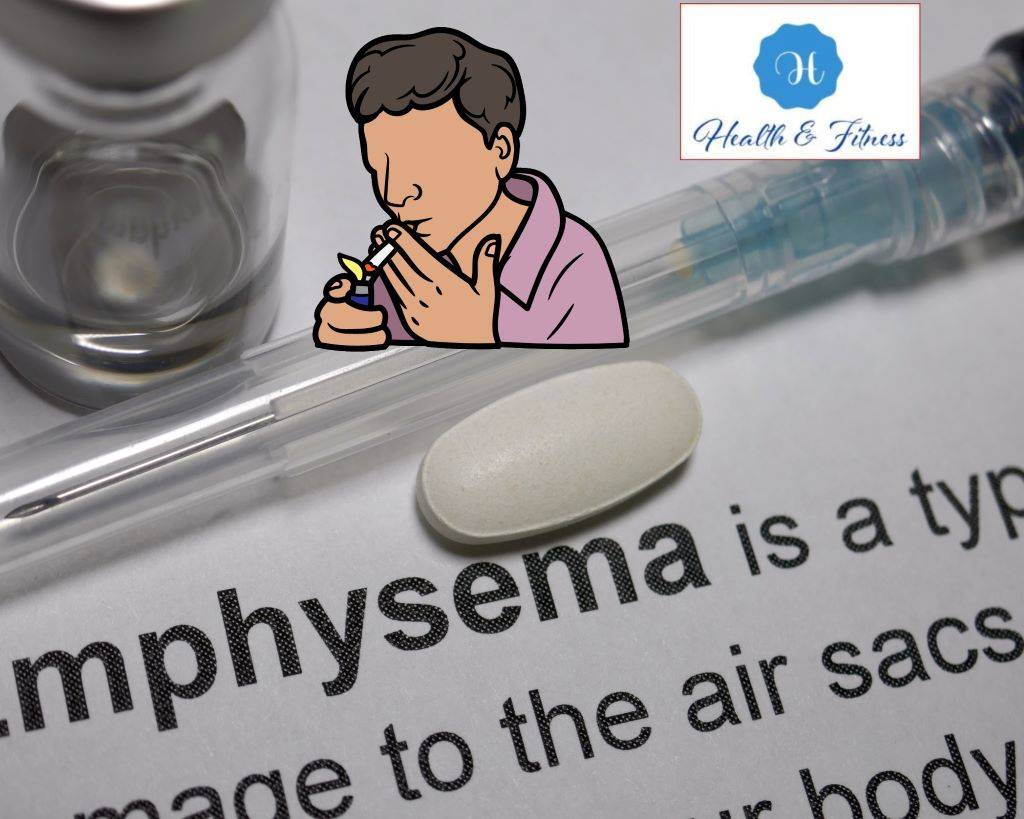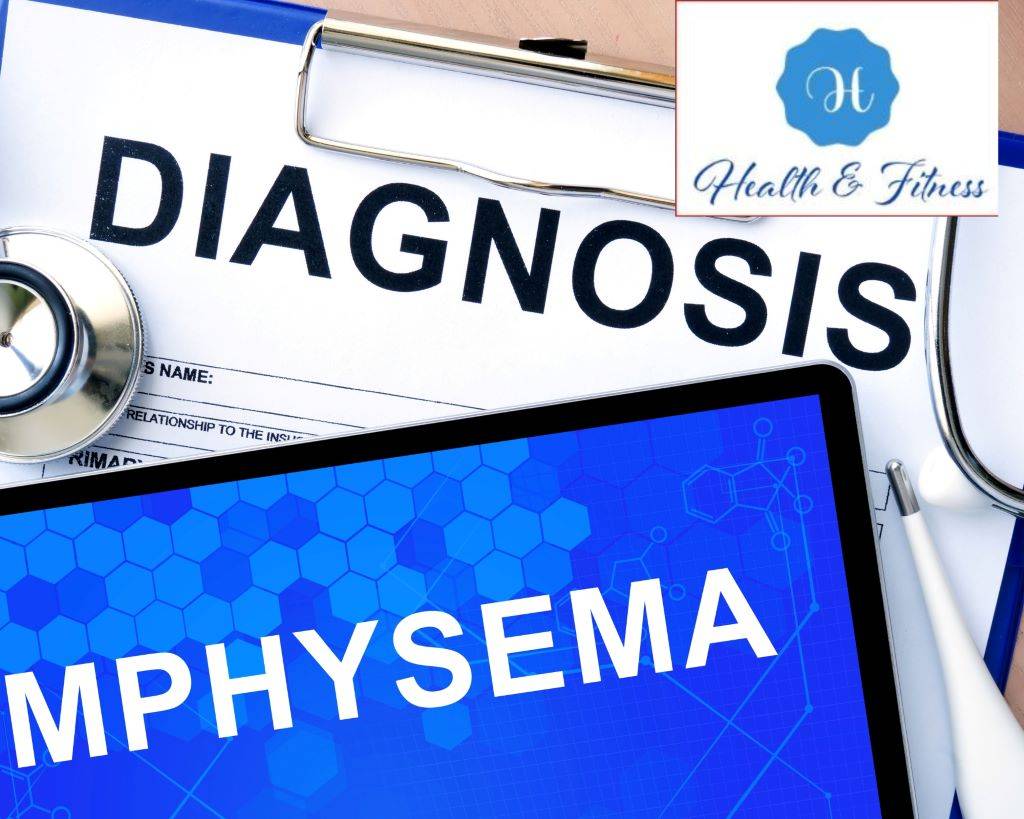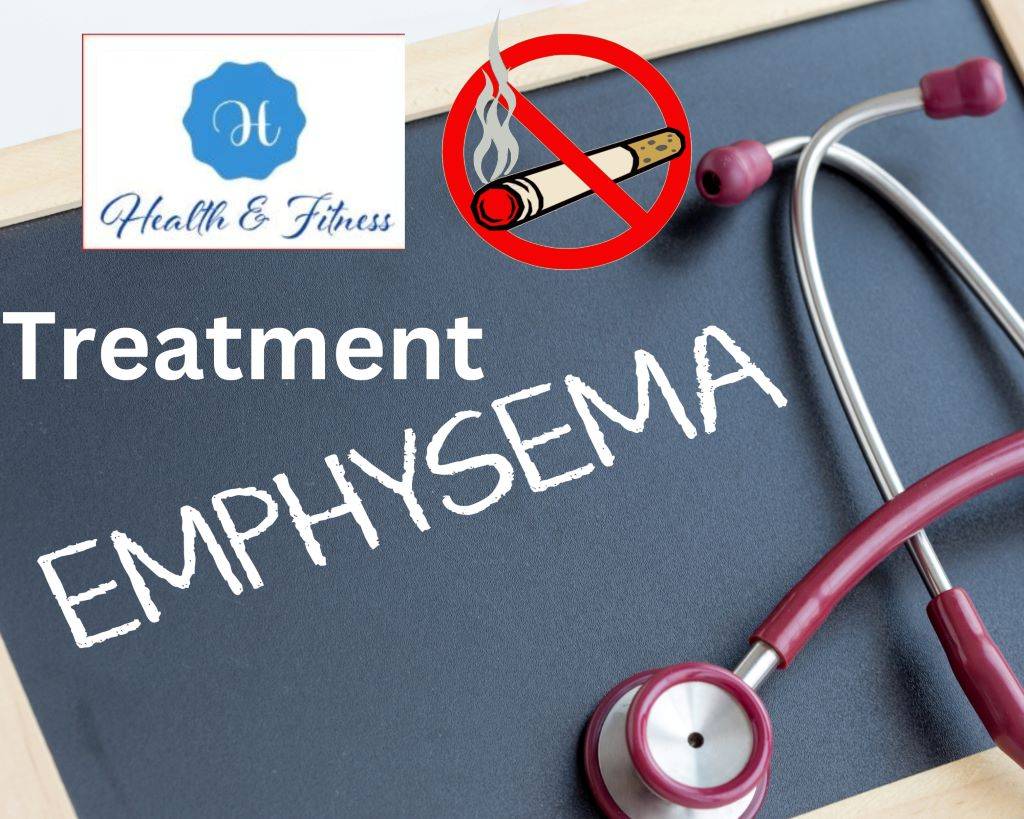Discover the causes and treatment options for Emphysema NHS in this comprehensive guide. Learn to manage your condition with NHS support.
Introduction to Emphysema NHS
Emphysema is a chronic and progressive lung condition that can significantly impact a person’s quality of life. The NHS plays a vital role in the diagnosis and management of Emphysema. In this comprehensive guide, we’ll explore the causes and treatment options for Emphysema, with a focus on the support and services offered by the NHS. Whether you’re seeking to understand this condition or looking for ways to manage it effectively, this article is tailored to provide you with the information you need.
Understanding Emphysema
What is Emphysema?
Emphysema is a type of chronic obstructive pulmonary disease (COPD) characterized by the gradual destruction of the air sacs in the lungs. These tiny sacs, known as alveoli, are responsible for oxygen exchange in the lungs. In Emphysema, the alveoli lose their elasticity, making it difficult for the lungs to expel air efficiently. This leads to shortness of breath, a hallmark symptom of the condition.
Types of Emphysema
There are primarily two types of Emphysema:
- Centriacinar Emphysema: This type usually affects the upper lobes of the lungs and is often associated with smoking.
- Panacinar Emphysema: Panacinar Emphysema affects the lower lobes of the lungs and is commonly seen in individuals with an inherited condition called alpha-1 antitrypsin deficiency.
Common Symptoms
Emphysema is often associated with the following symptoms:
- Shortness of breath, especially during physical activity.
- Chronic cough.
- Wheezing.
- Excessive mucus production.
- Reduced exercise tolerance.
- Chest tightness.
Causes of Emphysema

Smoking and Emphysema
Smoking is the leading cause of Emphysema. It exposes the lungs to harmful chemicals, such as tar and nicotine, which can cause inflammation and damage to the air sacs. Statistics reveal a strong correlation between smoking and Emphysema, making it a critical factor to consider for both prevention and management.
Environmental Factors
Environmental factors, such as exposure to air pollution, secondhand smoke, and workplace chemicals, can also contribute to Emphysema. Individuals working in industries like mining, construction, or manufacturing are at a higher risk because of prolonged exposure to airborne irritants.
Genetic Factors
While smoking and environmental factors are common causes, genetics can also play a role in Emphysema. Alpha-1 antitrypsin deficiency is a genetic condition that can lead to the development of Emphysema. Understanding your family history and genetic predisposition is crucial, especially if you have a family history of lung disease.
Diagnosing Emphysema

Medical Evaluation
Diagnosing Emphysema typically begins with a thorough medical evaluation, including a discussion of your symptoms, medical history, and risk factors. Your healthcare provider will perform a physical examination and may use diagnostic tests to assess lung function.
Pulmonary Function Tests (PFTs)
Pulmonary Function Tests, including spirometry and lung volume tests, are essential for diagnosing and monitoring Emphysema. These tests measure the volume of air you can exhale and how quickly you can do so. Abnormal results can indicate Emphysema and help determine its severity.
Now that we have a foundational understanding of Emphysema, its types, and how it’s diagnosed, let’s delve deeper into the support and services provided by the NHS for individuals dealing with this condition. In the next sections, we will explore how to access NHS care, available support programs, and various treatment options for Emphysema.
Emphysema NHS Support and Services
In the United Kingdom, the National Health Service (NHS) is committed to providing comprehensive support and services for individuals dealing with Emphysema. Here, we will explore how patients can access NHS care, the support programs available, and various treatment options for Emphysema.
Accessing NHS Care
Accessing NHS care for Emphysema is a crucial first step in managing the condition effectively. The NHS offers accessible and quality care for Emphysema patients. Here’s what you need to know:
- General Practitioner (GP): Start by scheduling an appointment with your GP. They can provide initial assessments, discuss symptoms, and refer you to specialists if necessary.
- Specialist Clinics: The NHS has specialized clinics that focus on respiratory conditions like Emphysema. You may be referred to a consultant or a respiratory clinic for more in-depth evaluation and care.
- Emergency Care: If you experience severe symptoms, such as extreme shortness of breath, seek immediate medical attention. The NHS provides emergency care services to manage acute exacerbations of Emphysema.
Emphysema NHS Support Programs
The NHS offers a range of support programs designed to assist Emphysema patients in managing their condition effectively. These programs aim to improve the patient’s quality of life and overall well-being. Some of the support options include:
- Pulmonary Rehabilitation: Pulmonary rehabilitation programs are tailored to help patients with lung conditions, including Emphysema, improve their breathing, exercise tolerance, and overall health.
- Smoking Cessation Support: For individuals whose Emphysema is linked to smoking, the NHS offers smoking cessation programs to help patients quit smoking and reduce further damage to their lungs.
- Oxygen Therapy: In some cases, individuals with Emphysema may require oxygen therapy. The NHS provides access to oxygen equipment and training on how to use it safely.
- Home Healthcare Services: For patients with severe Emphysema, the NHS can arrange for home healthcare services, ensuring that individuals receive the care they need in the comfort of their homes.
Treatment Emphysema NHS

Treating Emphysema involves a multi-faceted approach that aims to relieve symptoms, slow the progression of the disease, and improve the patient’s quality of life. Some key treatment options include:
Lifestyle Changes
- Smoking Cessation: If you’re a smoker, quitting is the most effective way to slow the progression of Emphysema. The NHS provides resources and support to help you quit smoking.
- Exercise: Regular physical activity can help improve lung function and overall health. Your healthcare provider can recommend a suitable exercise regimen.
- Dietary Changes: A balanced diet can help you maintain a healthy weight, which reduces the strain on your respiratory system.
- Breathing Techniques: Learning and practicing specific breathing techniques can help manage breathlessness.
Medications
- Bronchodilators: These medications relax the muscles around your airways, making it easier to breathe.
- Inhaled Corticosteroids: These reduce inflammation in the airways, helping to alleviate symptoms.
- Antibiotics: Prescribed to treat respiratory infections that can worsen Emphysema.
Oxygen Therapy
For individuals with severe Emphysema, oxygen therapy can significantly improve their quality of life. The NHS provides oxygen therapy equipment and support for those in need.
Surgical Options
In advanced cases of Emphysema, surgical interventions may be considered. These include:
- Lung Volume Reduction Surgery (LVRS): This procedure removes damaged lung tissue, allowing healthier lung tissue to function more effectively.
- Lung Transplantation: For patients with end-stage Emphysema, a lung transplant may be a viable option.
With proper diagnosis, access to NHS services, and a tailored treatment plan, individuals with Emphysema can lead fulfilling lives while effectively managing their condition. The support and services offered by the NHS play a critical role in this journey.
In the next section, we will explore practical coping strategies for managing Emphysema in daily life, along with the importance of emotional and psychological support. These elements are essential for a holistic approach to Emphysema care and can greatly improve the quality of life for those living with the condition.
Coping with Emphysema: NHS: Practical Strategies and Support
Living with Emphysema can be challenging, but with the right coping strategies and support, individuals can improve their quality of life. In this section, we’ll explore practical tips for managing Emphysema symptoms and the importance of emotional and psychological support.
Coping Strategies
Managing Emphysema effectively often involves making changes to your daily routine and lifestyle. Here are some practical coping strategies:
- Pulmonary Rehabilitation: Engage in pulmonary rehabilitation programs to improve your lung function, exercise tolerance, and overall well-being. These programs often include exercise, education, and support.
- Breathing Techniques: Learn and practice breathing techniques to help you manage breathlessness. Techniques like pursed-lip breathing and diaphragmatic breathing can be highly effective.
- Dietary Considerations: A healthy, balanced diet can help you maintain a suitable weight and provide the necessary nutrients for your overall health. Consult with a healthcare professional or dietitian for guidance.
- Medication Management: Ensure you are using your prescribed medications correctly. Follow your healthcare provider’s instructions and discuss any concerns or side effects with them.
- Hydration: Staying well-hydrated is important, as it can help keep mucus in the lungs from becoming too thick and difficult to clear.
- Rest and Pacing: It’s essential to balance activity and rest. Listen to your body and don’t overexert yourself. Pacing your activities can help conserve your energy.
- Avoid Respiratory Irritants: Stay away from tobacco smoke, pollutants, and other respiratory irritants that can worsen your symptoms.
Supportive Care
Emphysema is not just a physical condition; it also affects a person emotionally and psychologically. Supportive care is crucial for addressing these aspects of living with Emphysema:
- Emotional Support: Living with a chronic condition can be emotionally challenging. Seek emotional support from friends, family, or support groups. Talking to others who are going through similar experiences can be incredibly helpful.
- Mental Health: Don’t hesitate to reach out to a mental health professional if you are struggling with anxiety or depression related to your condition. Emotional well-being is an integral part of managing Emphysema.
- Support Groups: Consider joining support groups specifically for individuals with Emphysema. Sharing experiences, advice, and coping strategies with others can provide a sense of belonging and empowerment.
- Advanced Directives: Discuss your healthcare preferences with your loved ones and consider creating advanced directives. This ensures that your healthcare decisions align with your wishes, even if you cannot communicate them.
- Caregiver Support: If you have a caregiver, make sure they have access to resources and support as well. Caring for someone with Emphysema can be emotionally taxing, and caregivers need their support network.
Prognosis and Future Directions
The prognosis for individuals with Emphysema can vary depending on factors such as the severity of the condition, the presence of other health issues, and how well the condition is managed. It’s important to stay engaged with your healthcare team and follow your treatment plan to optimize your prognosis.
Research into Emphysema and its treatment is ongoing. Promising advancements are being made in areas like stem cell therapy and gene therapy. These potential future therapies could offer new hope for individuals living with Emphysema. Staying informed about the latest developments in Emphysema research is a way to remain hopeful about the future.
In conclusion, Emphysema is a chronic condition that requires a holistic approach to management. By adopting practical coping strategies, seeking emotional and psychological support, and staying informed about the latest advancements, individuals can lead fulfilling lives while effectively managing their Emphysema.
For additional resources, please visit the NHS Emphysema page to access more information about the condition and available support services.
Conclusion: Taking Control of Emphysema with NHS Support
In this in-depth guide, we’ve explored the intricate aspects of Emphysema, its causes, and the comprehensive support provided by the National Health Service (NHS). Emphysema is a challenging condition, but with the right information and support, individuals can lead fulfilling lives.
Here are the important points from our discussion:
- Emphysema Basics: Emphysema is a type of chronic obstructive pulmonary disease (COPD) characterized by progressive damage to the air sacs in the lungs, leading to symptoms like shortness of breath and chronic cough.
- Causes of Emphysema: Smoking, environmental factors, and genetics all play a role in the development of Emphysema. Understanding these causes is essential for prevention and management.
- Diagnosis of Emphysema involves a medical evaluation, including pulmonary function tests, to assess lung function and severity of the condition.
- Accessing NHS Care: The NHS provides accessible and quality care for Emphysema patients. It all begins with a visit to your general practitioner (GP) and potential referrals to specialists and clinics.
- NHS Support Programs: The NHS offers a range of support programs, including pulmonary rehabilitation, smoking cessation support, oxygen therapy, and home healthcare services.
- Treatment Options: Emphysema management includes lifestyle changes, medication, oxygen therapy, and, in some cases, surgical interventions such as lung volume reduction surgery and lung transplantation.
- Coping Strategies: Managing Emphysema requires lifestyle adjustments, breathing techniques, a balanced diet, and pacing activities to conserve energy.
- Supportive Care: Emotional and psychological support, including support groups and caregiver support, is essential for addressing the holistic impact of Emphysema.
- Prognosis and Future Directions: Prognosis varies depending on factors like the severity of the condition and how well it’s managed. Staying informed about advancements in Emphysema research can provide hope for the future.
The NHS is a valuable resource for individuals living with Emphysema. By actively engaging with the healthcare system and following recommended treatments and lifestyle adjustments, patients can take control of their condition and improve their overall well-being.

Adel Galal is a health and wellness writer with over 30 years of experience studying and writing about health, fitness, nutrition, and healthy living. He is the founder of NextFitLife.com, where he shares practical, evidence-based guidance to support long-term health at any age. Adel’s mission is simple:
to help people make smarter health choices that fit real life, at any age.



